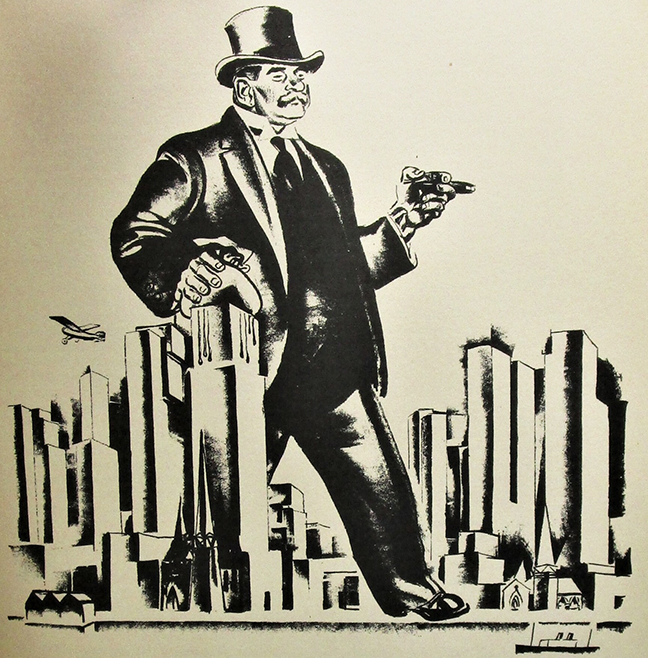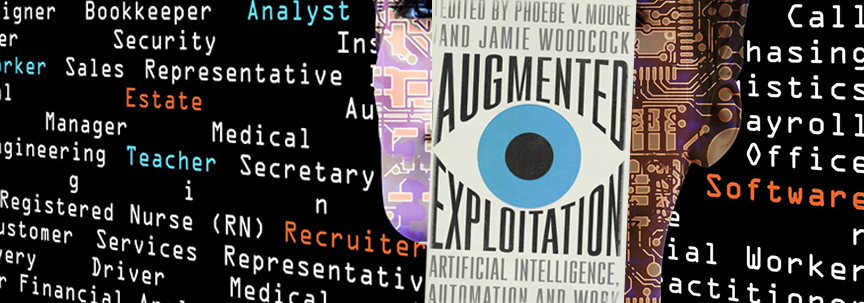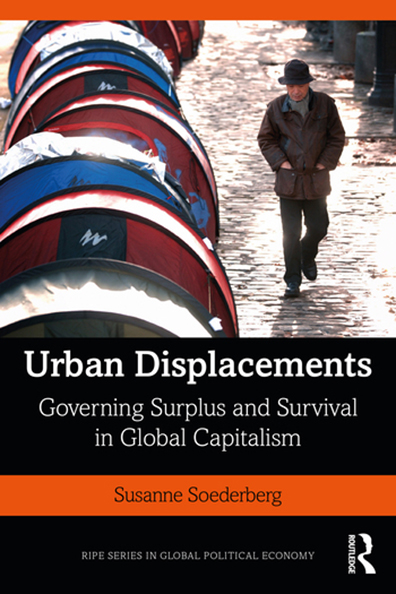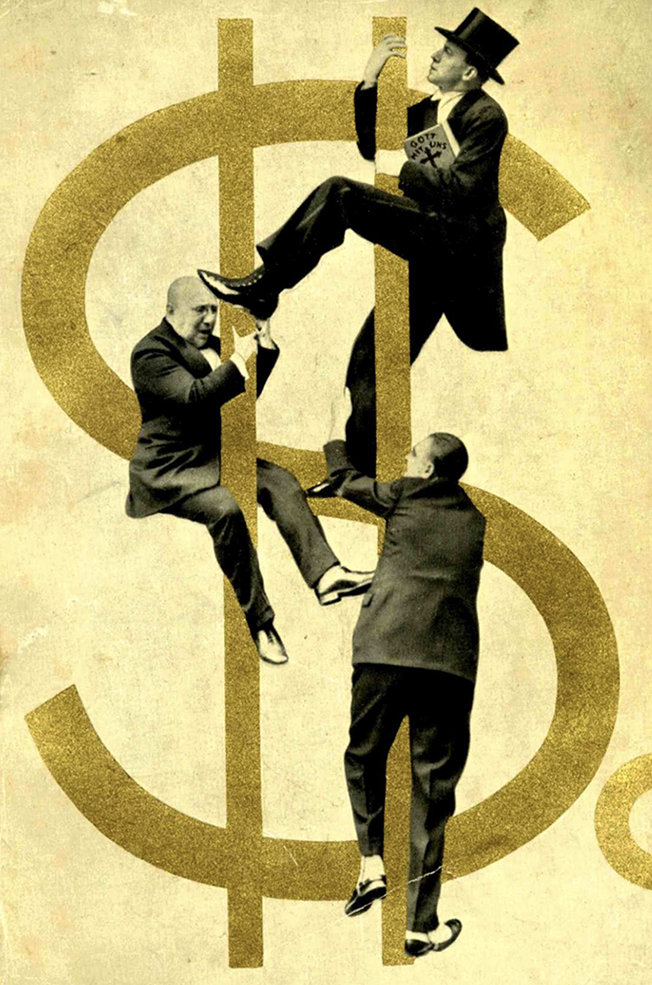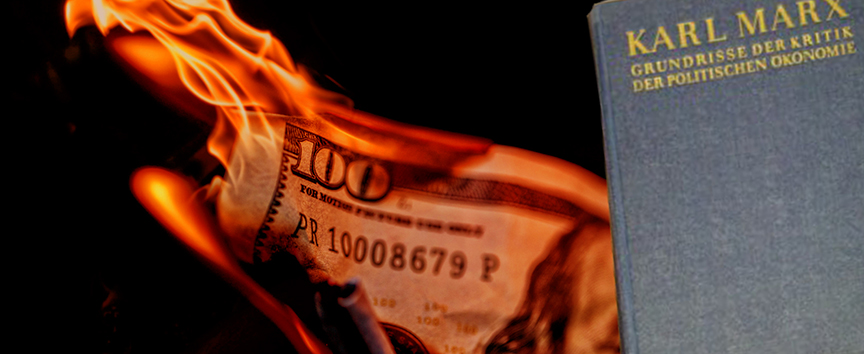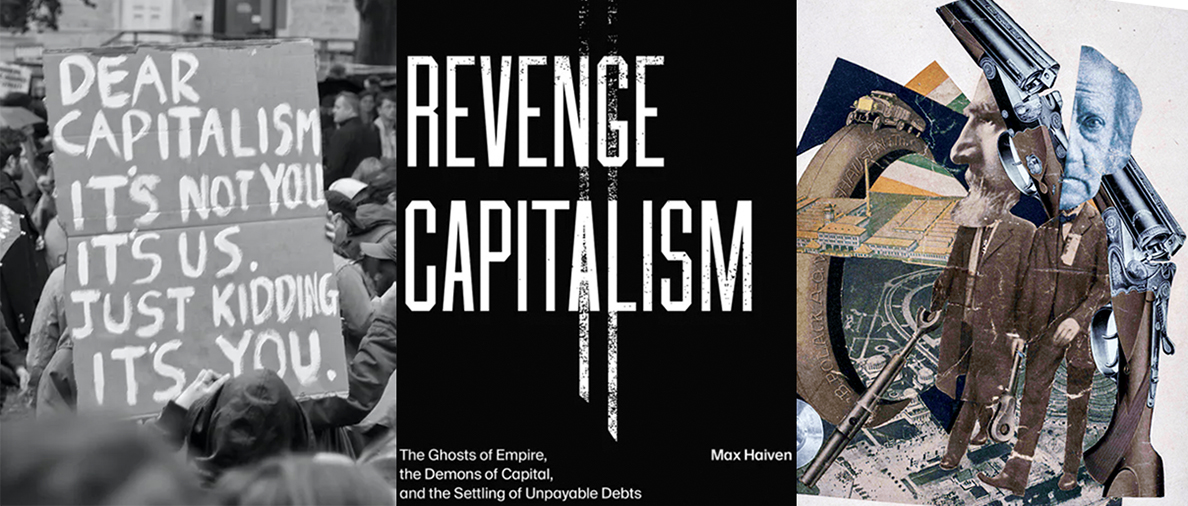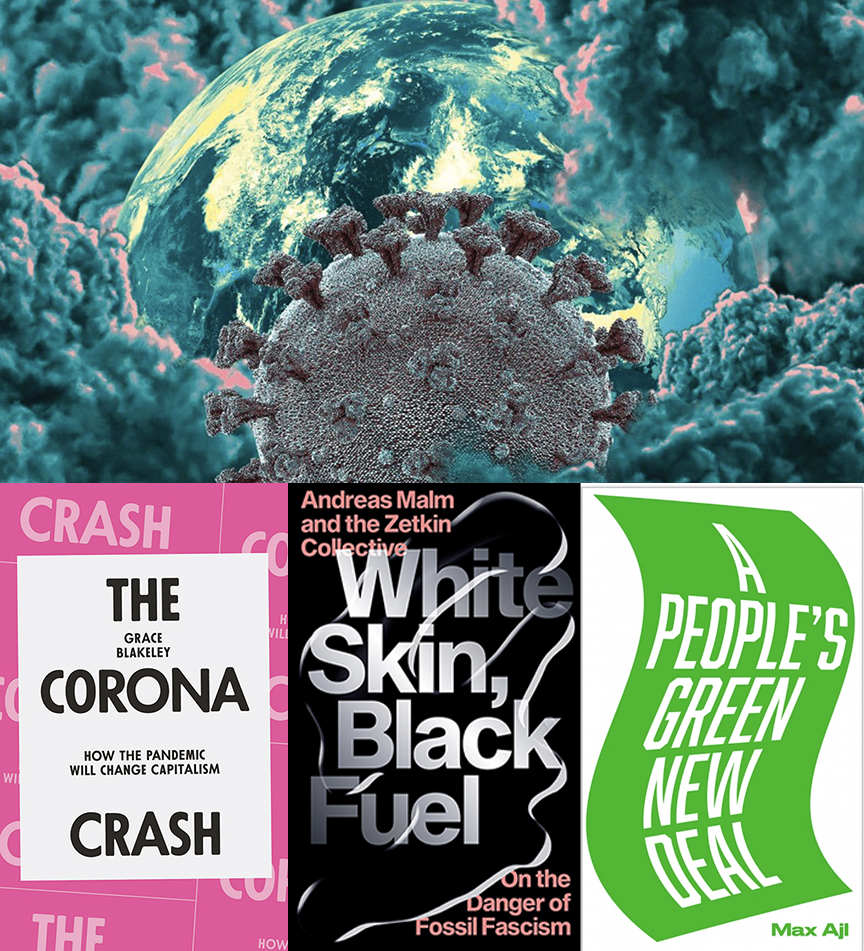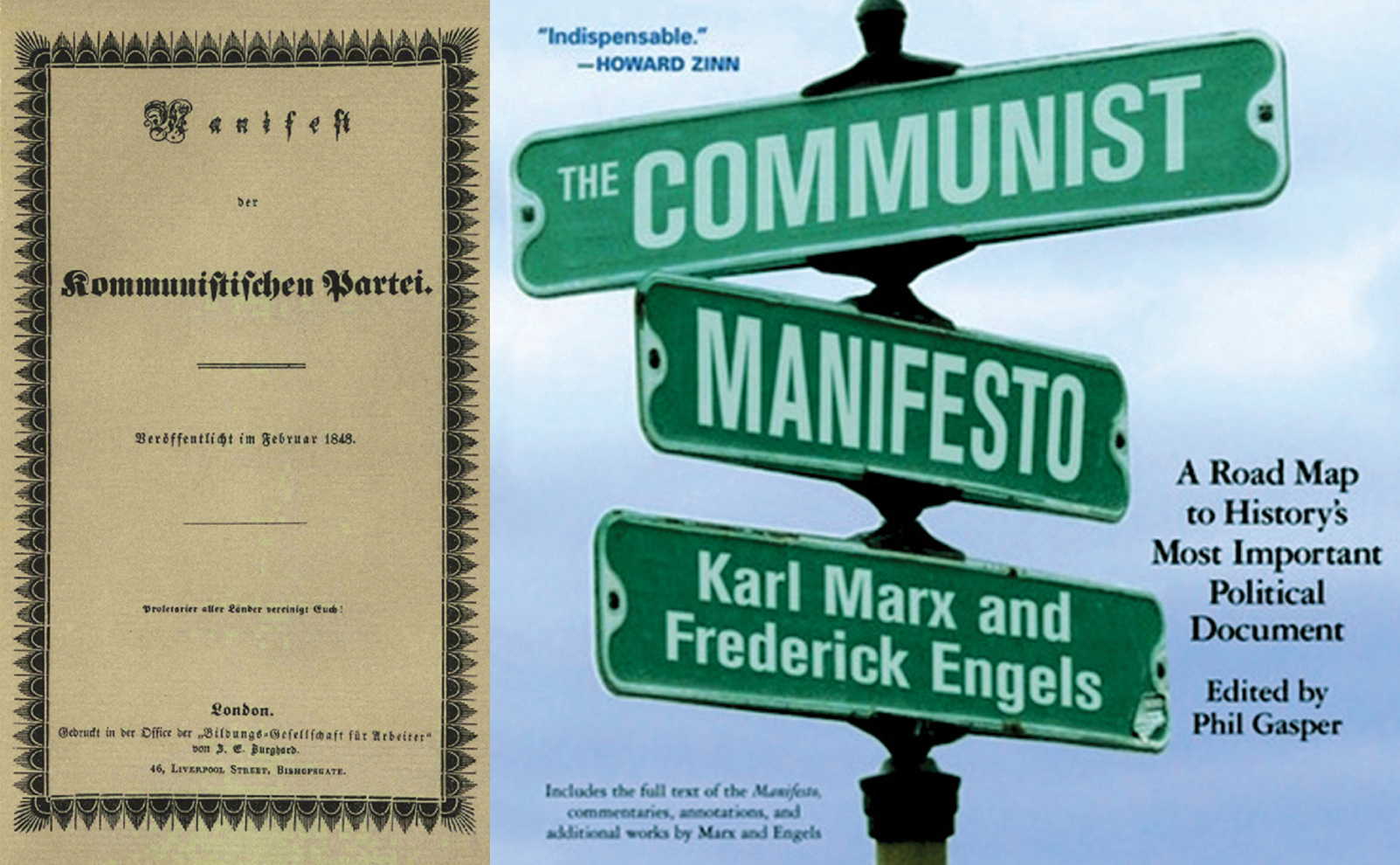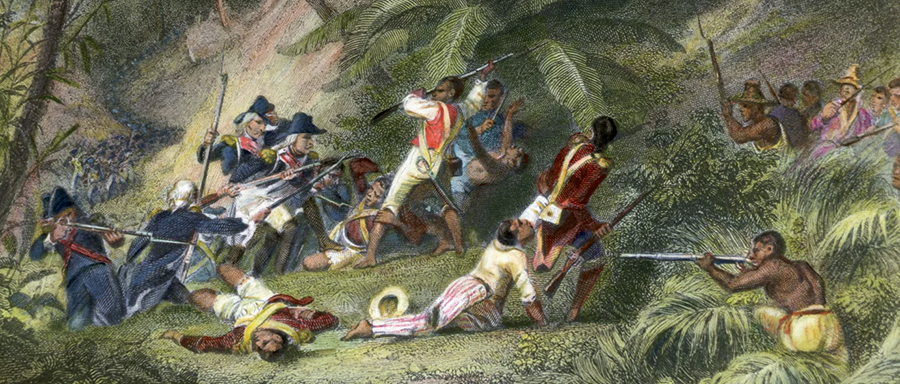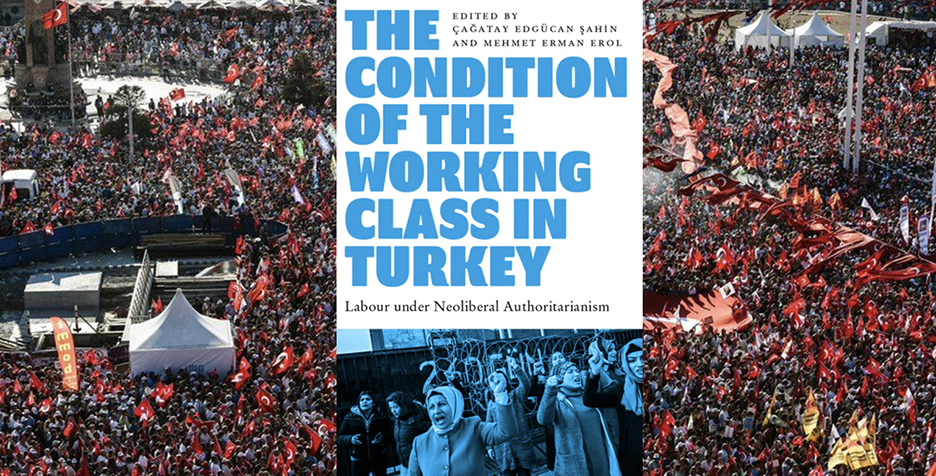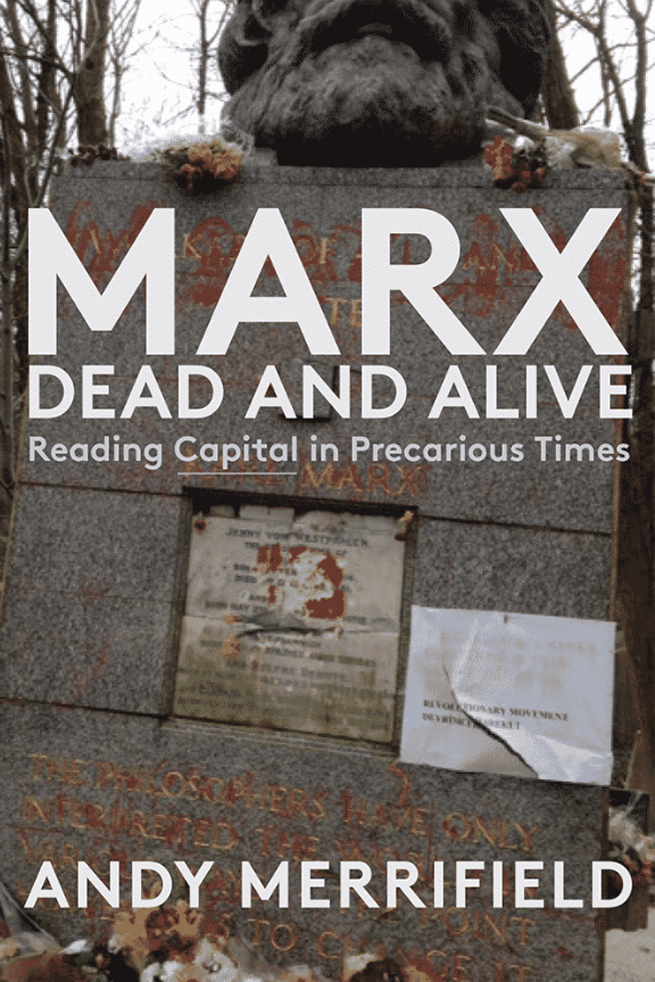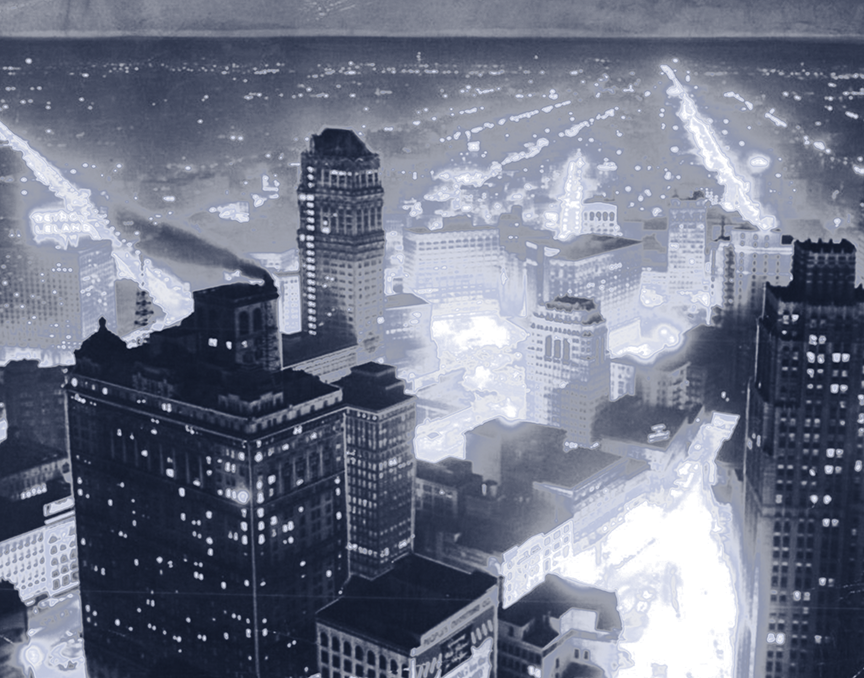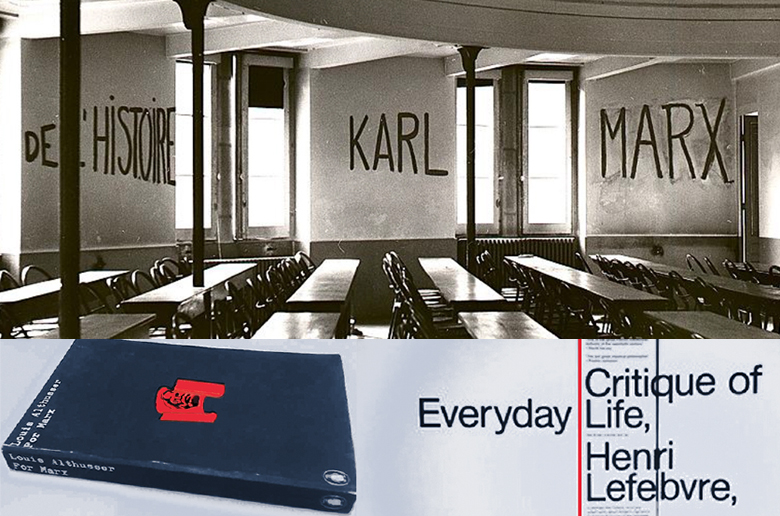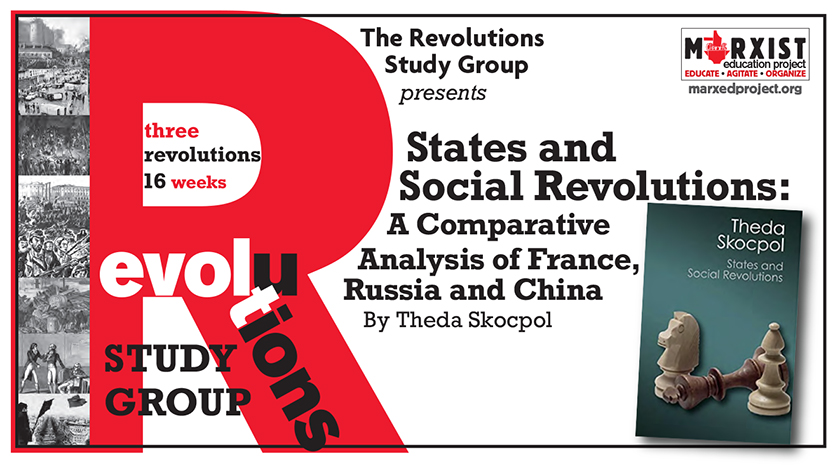Political Economy
Capital, V1, Part 2: The Transformation of Money Into Capital
Online: Zoom link will be provided to registered participantsWe will do a close reading of the chapters in Part Two of Volume I of Capital on “The Transformation of Money Into Capital”. In these chapters Marx introduces the fundamental concepts of capital,labor power, surplus value and the valorization process.
Augmented Exploitation: Artificial Intelligence, Automation, Work and Changes in the Labor Process
Online: Zoom link will be provided to registered participantsIn the Introduction to Augmented Exploitation, co-editors Phoebe Moore and Jamie Woodcock point up two main problems with how automation and artificial intelligence are being discussed as the end of the first quarter of the 21st century draws near. Number one is the claim that Al is changing the labor process in new and unprecedented ways. But capitalists have always introduced machines in order to increase the amount of what each worker can produce in a given period of time. This is where the second problem comes in—either a certain process will be automated, or it will not—a binary that focuses on machines and not on the workers who operate them. Rather than the prospects of automation and interpretive learning replacing workers, we need rather to see that these are augmentations of the labor process. Also discussed will be two of the many vital essays from this year's Socialist Register—Beyond Digital Capitalism: New Ways of Living.
Urban Displacements and Contemporary Capitalism
Online: Zoom link will be provided to registered participantsSusanne Soederberg argues that historical and geographical configurations of monetized governance, including landlords, employers and inter-scalar state practices, have served to reproduce urban displacements and obfuscate their gendered, class and racialized underpinnings. The outcome is the everyday facilitation and normalization of urban poverty and social marginalization on one side, and capital accumulation on the other.
Value, Fictitious Capital and Finance. The Timelessness of Karl Marx’s Capital with John Milios
Online: Zoom link will be provided to registered participantsStarting from his value-form analysis in Part One of Volume 1 of Capital, Marx develops the concept of “fictitious capital” in Volume 3, which depicts the role of interest-bearing capital and the financial sphere. Marx’s analysis allows for an understanding of contemporary capitalism, financialization and crisis: financialization cannot be isolated from “real” economy; it should be conceived as a “technology” of exercising capitalist power and hegemony over the working classes and the society as a whole. Marx’s analysis provides the terms to rethink the contemporary neoliberal form of capitalism and its crisis as expressions of the contradictions inherent in the organization of capitalist power.
Studies in the Works of Antonio Gramsci with Piruz Alemi
Online: Zoom link will be provided to registered participantsThis 10-week session has four sessions remaining which feature a close reading of Gramsci’s Prison Notebooks. We will look to connect cultures and their human rights struggles. We will also explore those who influenced Gramsci, particularly Marx, but also Machiavelli and Croce. This seminar is accessible to people at all levels of familiarity with Gramsci’s work, including those just beginning their studies of Gramsci. Join at any time.
Grundrisse: The Chapter on Money (The first two notebooks)
Online: Zoom link will be provided to registered participants“Forces of production and social relations - two different sides of the development of the social individual - appear to capital as mere means, and are merely means for it to produce on its limited foundation. In fact, however, they are the material conditions to blow this foundation sky-high...” —Karl Marx, The Grundrisse
Revenge Capitalism with Max Haiven
Online: Zoom link will be provided to registered participantsIn Revenge Capitalism, Max Haiven argues that this economic vengeance helps us explain the culture and politics of revenge we see in society more broadly. Moving from the history of colonialism and its continuing effects today, he examines the opioid crisis in the US, the growth of 'surplus populations' worldwide and unpacks the central paradigm of unpayable debts - both as reparations owed, and as a methodology of oppression. Revenge Capitalism offers no easy answers, but Max has made a powerful call to the radical imagination: “When you live in someone else’s utopia, all you have is revenge. We live in capitalism’s utopia, a world almost completely reconfigured to suit the needs of accumulation. And the world’s alight, and ours is an age of vengeance. It is vengeance, sadly, that is usually directed at those who least deserve it and which leaves those whose actions led to the current state of affairs, or who benefit from it, free or even more empowered.” —Max Haiven, from his introduction to Revenge Capitalism
Ecosocialism in the Shadow of Covid
Online: Zoom link will be provided to registered participantsWe will read and discuss three books: The Corona Crash (Verso), by Grace Blakeley, details how the pandemic is ushering in a new era in which the corporate economy collapses into the arms of the state, and behemoths like Amazon and Netflix balloon in profit and power. White Skin, Black Fuel (Verso), by Andreas Malm and the Zetkin Collective, takes a comprehensive look at how extreme-right currents are responding to ecological crises with with authoritarian and xenophobic proposals while remaining ardent supporters of fossil capital – black fuels to support white supremacy. And A People’s Green New Deal (Pluto), by Max Ajl, engages critically with various Green New Deal proposals and sketches out a radical alternative committed to degrowth, anti-imperialism and agro-ecology.
A Guide to The Communist Manifesto with Phil Gasper
Online: Zoom link will be provided to registered participantsIF YOU CANNOT OURCHASE ON OUR SITE, TICKETS ARE AVAILABLE AT EVENTBRITE: https://www.eventbrite.com/e/203494927807
Since Phil produced this edition, the English-reading left has had an authoritative introduction to history’s most important political document, with the full text of The Communist Manifesto by Marx and Engels. This beautifully organized and presented edition of The Communist Manifestois fully annotated, with clear historical references and explication, additional related texts, and a glossary that will bring the text to life for students, as well as the general reader. Since it was first written in 1848, the Manifesto has been translated into more languages than any other modern text. It has been banned, censored, burned, and declared “dead.” But year after year, the text only grows more influential, remaining required reading in courses on philosophy, politics, economics, and history.
The Invention of the White Race
Online: Zoom link will be provided to registered participantsTheodore W. Allen spent 30 years researching the primary sources and writing The Invention of the White Race (2 volumes), which provides a historical materialist analysis of racial oppression and the white identity which emerged as a principal form of social control over rebellious laboring class of European and Africans in the pattern setting colonies of Virginia and Maryland in the late 17th early 18th century.
The Condition of the Working Class in Turkey
Online: Zoom link will be provided to registered participantsMoving beyond headlines and personalities, uncovered are the real working class conditions in modern Turkey. Combining field research and interviews, cutting-edge analyses of workplace struggles, trade unionism, the AKP’s relationship with neoliberalism, migration, gender, agrarian change and precarity, as well as the Covid-19 pandemic and its impact on workers are presented succinctly. Brought together by a broad range of Turkish activists and scholars who consider what the dynamics and contradictions of working-class resistance against Turkey’s neoliberal authoritarian regime have become.
Book Special Redux! Marx Dead and Alive: Reading Capital in Precarious Times
Online: Zoom link will be provided to registered participantsThis is for ordering the book only. Andy has an upcoming talk on Sunday, January 23. We are offering this important book for $12.00 inclusive of postage (US and Puerto Rico only), until one week after Andy's presentation on Henri Lefebvre and Louis Althusser.
A People’s History of Detroit
Online: Zoom link will be provided to registered participantsMark Jay and Philip Conklin outline the complex sociopolitical dynamics underlying major events in Detroit's past, from the rise of Fordism and the formation of labor unions, to deindustrialization and the city's recent bankruptcy. They demonstrate that Detroit's history is not a tale of two cities—one of wealth and development and another racked by poverty and racial violence; rather it is the story of a single Detroit that operates according to capitalism's mandates.
Lefebvre / Althusser: Humanist and Anti-Humanist Marxism
On-Line via Zoom You will receive Zoom link by email before the event., NYCould a unified Left leverage state power away from a disgruntled Right? Could it do so in the streets, in the factories, and through the ballot box? Could forces within the state be modified by organized pressure from the outside? Could pressure from the outside not only transform the inside but actually become that inside? These and more questions will be discussed.
States and Social Revolutions: A Comparative Analysis of France, Russia and China
Online: Zoom link will be provided to registered participantsSkocpol asserts that social revolutions are rapid and basic transformations of a society's state and class structures. She distinguishes this from mere rebellions, which involve a revolt of subordinate classes but may not create structural change, and from political revolutions that may change state structures but not social structures. What is unique about social revolutions, she argues, is that basic changes in social structure and political structure occur in a mutually reinforcing fashion and these changes occur through intense sociopolitical conflict. A convergence of peasant rebellion on one hand and international pressures causing state breakdown on the other hand cause revolutionary social movements.

